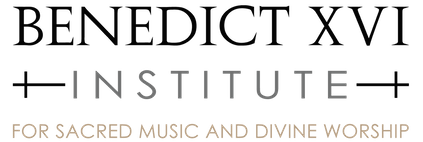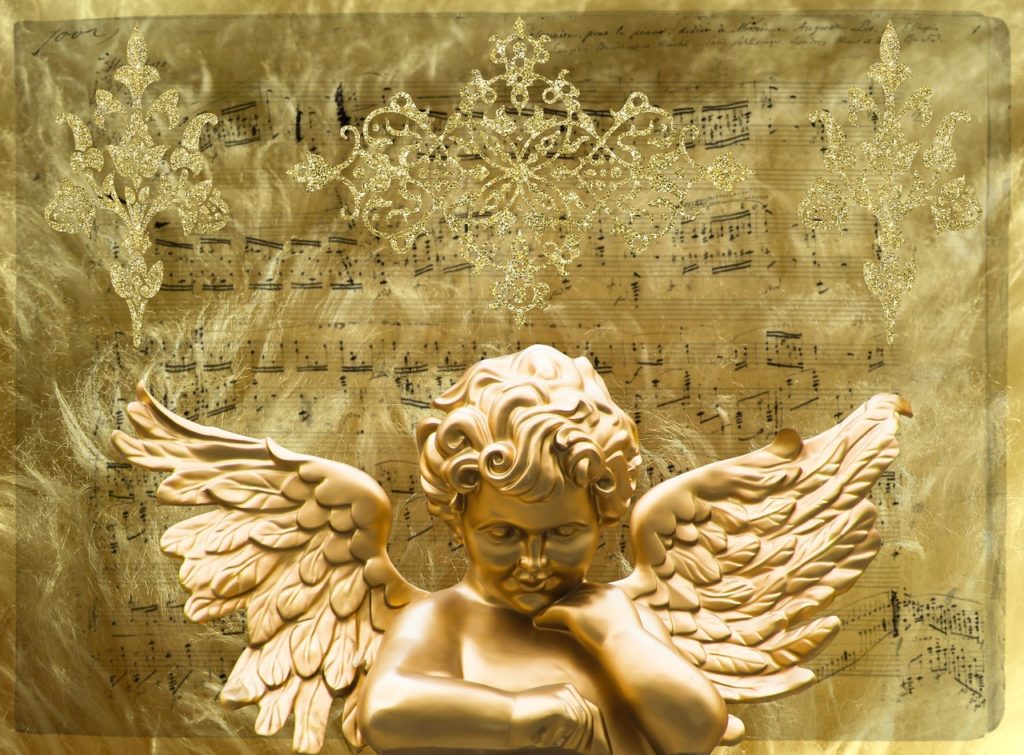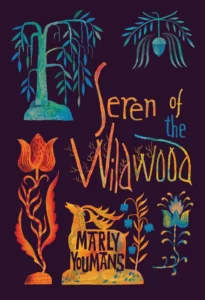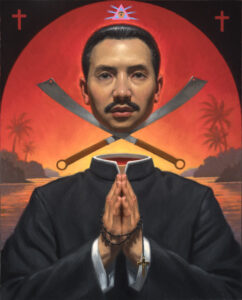The search for the sacred, from the composers’ point of view, often begins as a confluence of personal connections and practical need. Such is the story of “Tu Autem Domine” (But Thou, 0 Lord) a work for SATB chorus which I had the pleasure of composing for and hearing premiered this past spring by a choir conducted by the Polish maestro Szymon Wyrzykowski.
No matter how much the modernists and theorists would wish it otherwise, music does not occur in a vacuum. A musical composition is refined from the chaos of life, bearing the fingerprints of the creator and the dents and peculiarities of the culture surrounding him.
The music is a brief imprint of an inner life lived. I can show you how such things happen for at least one composer.
The story begins in a mountain hideaway in Poland in 2012, with a group of young Catholic musicians led by one intrepid conductor. We were all working hard to prepare a touring program of sacred music while also participating in a Catholic retreat. I found myself the tenth and final ‘composer in residence’ for this “Project Mozart” effort. Working from the project director and conductor Szymon Wyrzykowski’s request, I ended up setting a text from St. Faustyna (#343)– the ecstatic “O Beauty Uncreated” for a choir and chamber orchestra-sized for the performance of the project’s main event, the luminous and yet amazingly fun Mozart Coronation Mass.
Under Maestro Wyrzykowski I was able to experience a truly dedicated choral performance of my work for the first time: priceless for a young composer. As my friendships there grew, I found myself pining for a return to Poland and another chance to work with a conductor whose singular musical ability and deep faith combined to create an uncompromising creative vision. (A flawed live recording of the work recorded in St. Jacob the Apostle Church in Warsaw – the place where our festival Chaplain claimed that St. Faustyna purportedly received her vocational call – is all that remains of the experience, and we continue to search for the funding to do a fitting professional recording of the work.)
Six years later, I found myself asked to very quickly compose a piece for Wyrzykowski’s full-time group, the award-winning Jan Szyrocki Memorial Choir of the West Pomeranian University of Technology Choir in Szczecin (or “Chaps” for short). (My cousin Joanna Szymcak has sung in this choir, and so made this professional connection to the brilliant young Wyrzykowski’s world.) Time was short, I got to work.
I keep a sketchbook of musical fragments, texts, and ideas around both for my own uses as well as for “shotgun” opportunities of this sort. Browsing for a potential starting point, a single short melodic fragment caught my eye: the text “tu autem Domine, miserere nobis (mei) et resuscita me, Amen.” (But Thou, O Lord, have mercy on us (me) and raise me up again, Amen).
There was a nice little melody written to it (the one which now appears first in the tenors in my setting), but at the time nothing more had come of it. Yet now faced with a time crunch on such a wonderful performance opportunity, this single new chant-like phrase seemed to immediately generate music to either side of itself. When your ideas start the work for you, a composer would be foolish to refuse.
The text quotes Psalm 40:11; it was regularly sung or recited at the end of prayers in the Medieval Church. Superimposing both versions on top of each other allowed me to alternate the prayerful plea between “me” and “us” in the text, opening up a movement between the individual and collective plea in sung prayer. I thought about my wife at this time and her own particular spiritual struggles in which I have shared, as well as her frequent sacrifices (and rare rewards) in relation to my pursuit of a life in music composition; I ultimately and rightfully dedicated the music to her.
It was during this time that I was also working on a second commercial recording, a follow-up to the June 2017 release of “Blood, Forgotten” with the Voxare Quartet through Naxos Records. During this time one of my recordings for this album fell through, putting me below the necessary 55-minute minimum for our label. Fr. Michael Burbeck and the John Paul II Foundation for the Sacred Arts stepped up to generously sponsor both a professional recording and a video of the new work. It is thanks to them that I am able to share these efforts with you today, and I am beyond grateful and honored to be their first sacred music composer.
The general mood of the composition mixes uncertainty with optimism, dark horizons which momentarily part for hopeful and even ecstatic brief glimpses of the eternal fields of gladness beyond. It is music that represents our journey in this vale of tears, the heat of pitched battle and elongated struggle seasoned with the knowledge of the possibility of ultimate victory and joy.
Because of this my music is often unsettled and sometimes even difficult; there is no cheap grace, nor easy comfort; peace comes after undertaking a challenging journey.
So for example in my first String Quartet, “Songs of Forgiveness: After an uncertain and tumultuous movement through all manner of negative emotional states, the natural motion turns in the second movement from struggle to repose, and the movement of that repose from unwilling acceptance to transcendent joy. And yet once the realization of that joy is met, we must return to the vale to complete our life’s tasks. It is, I hope, authentic spiritual music and the farthest thing from cheap and saccharine artistic expression that I can create. It is also far from the common cultural perception of music as entertainment, an immediate balm achieved by the mere flip of a switch. I’m really hoping to open a deeper place for the listener, and something forever mysterious about music allows the willing listener to become a collaborator and co-experiencer of the artist’s deepest spiritual endeavor.
There is also certainly a relationship between this endeavor and the manner of technical struggle a composer regularly endures. This is always what I have sought in the music that I have allowed into my life and family’s home as well: deeply considered and spiritually potent work with profound musical development: nothing easy and everything earned. It is the music which helps me work through things, ultimately bringing me the deepest comfort and joy as opposed to temporary escape or diversion. That is the kind of music I seek not only to hear but to make.
I often prefer shorter texts for sacred choral works. This allows me to take a more meditative, almost Lectio Divina type of approach to the working-out of the composition while opening text-based works to a through-composed form. I would much rather play with the nobis/mei distinction in Tua Autem Domine, for instance, than worry about the effective setting of a second verse. I am also reminded of the old Christian practice – particularly strong in Eastern traditions – of quick, small prayers, such as the famous Jesus prayer: “Lord Jesus Christ, son of God, have mercy on me a sinner.” During difficult and tiring times where long prayer and contemplation seemed impossible, such little prayers have been my lifeline.
Anyone engaging in such a condensed spiritual practice throughout a day or days will become conscious of a secondary language emerging, wherein the meaning of the text is buoyed and even sometimes superseded by the motions of our hearts and souls as we try to live with and in the words so embraced. I think that this experience touches the same reality which the more abstract art forms like music are able and meant to reach towards, leading us naturally towards the “thin places” (to borrow a phrase from the Irish sensibility) and helping us stay there longer than our own natural powers may allow for. This is also part of the poetic experience as opened to us by God, when we (for instance) perceive active yet indefinable motions within and between and through the written word, motions which exceed the bounds of grammatical sense, pointing to a far more potent reality. This is what I think of as “echoes of origin and destiny”.
When the artist or listener reaches for this poetic reality with a heart of faith (or attempting faith), that multiplicity and layered depth of meaning can be approached. Such multifaceted reality can be found in every word recorded as said by the Word Incarnate Himself. Transcendence, in short, is the highest function of art.
On the front cover of the score of the work, I placed an image of a tired soldier, presumably resting in the field with his eyes closed. Was he after the battle, or perhaps resting after a long road before the final conflict? Was he in retreat? I know so many good people laboring in the field right now, so many people fighting for the souls of the culture, the Church, and their own families. I know the struggles we face together, and the frequent exhaustion and temptation to despair so easily conjured by an enemy with seemingly limitless temporal resources.
I am reminded of Tolkien writing: “together through ages of the world we have fought the long defeat.” It is the long but glorious defeat brought by not only the world but also our limited temporal strength which causes those engaged in the primary struggle to sometimes lift up their battered hands and ask: “How long, oh Lord?” Other times they just hang their heads in exhaustion, resting in their Lord and praying for life-giving rain. This type of prayer, uttered from the metaphorical muck of the field of battle, was certainly on my mind as I composed “Tu Autem, Domine”.
Scroll down to hear Tu Autem, Domine
Mark Nowakowski is a composer whose works represent a modern merger of bold expressionism and mystical contemplation, Slavic pathos and American individualism. His work has been commissioned and performed globally by such notables as the Kronos Quartet, the Cleveland Chamber Symphony, The Monteverdi Cello Octet, The Voxare Quartet, the FiveOne Experimental Orchestra, Three Notch’d Road, Stowarzyszenia Mozart, Vox Musica of Sacramento, the Choir of the Shrine of the Basilica of the Immaculate Conception, and the Cracow Brass Quintet Scroll down and click on the video to hear Tu Autem, Domine. To hear more of Mark Nowakowski’s work go to current.marknowakowski.com.
https://www.youtube.com/watch?v=AZTARLikzso&feature=youtu.be
